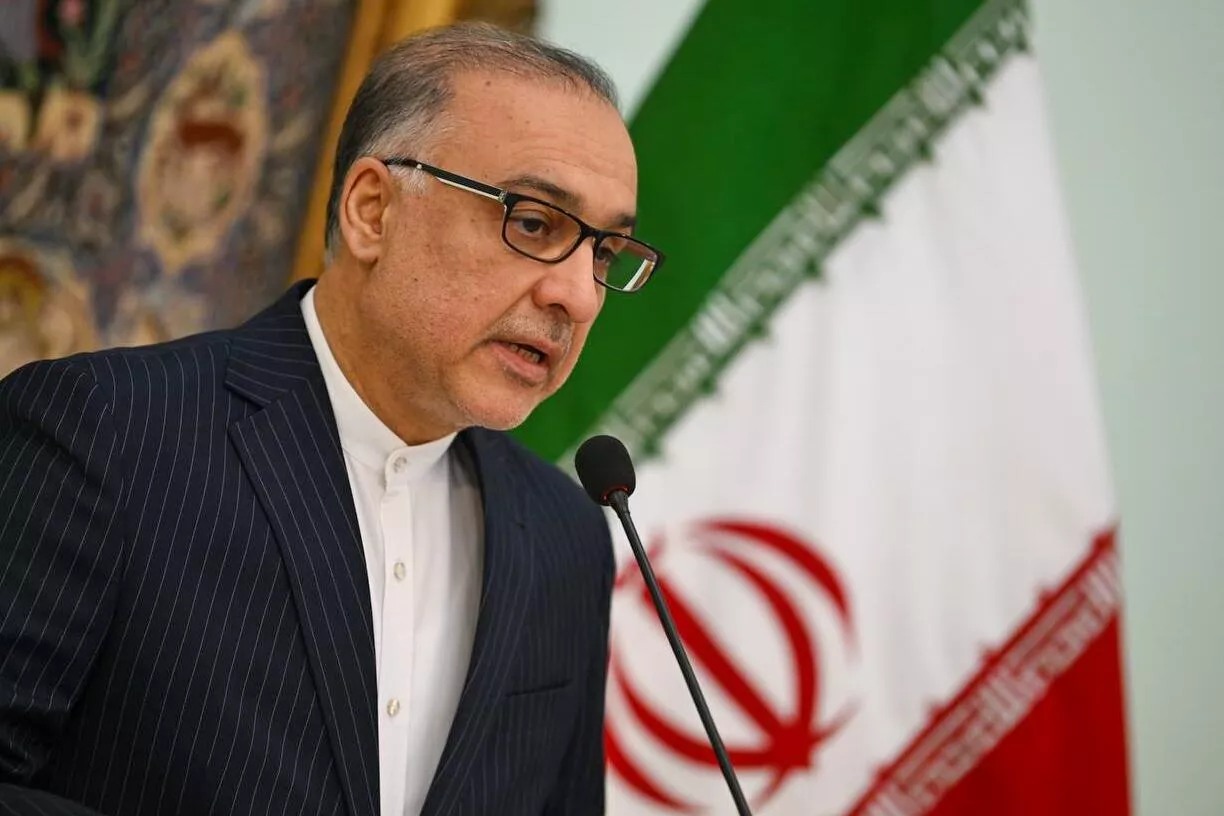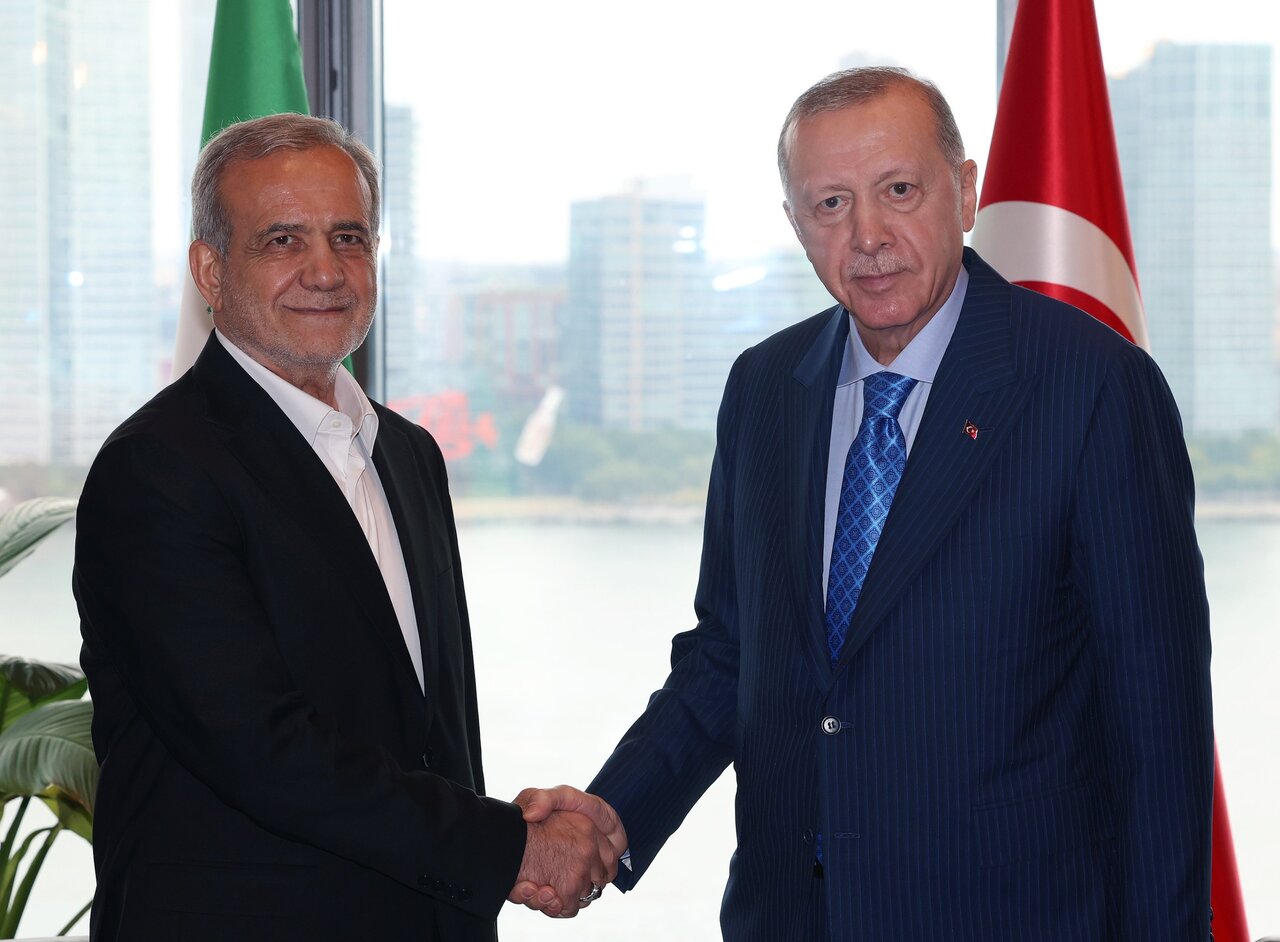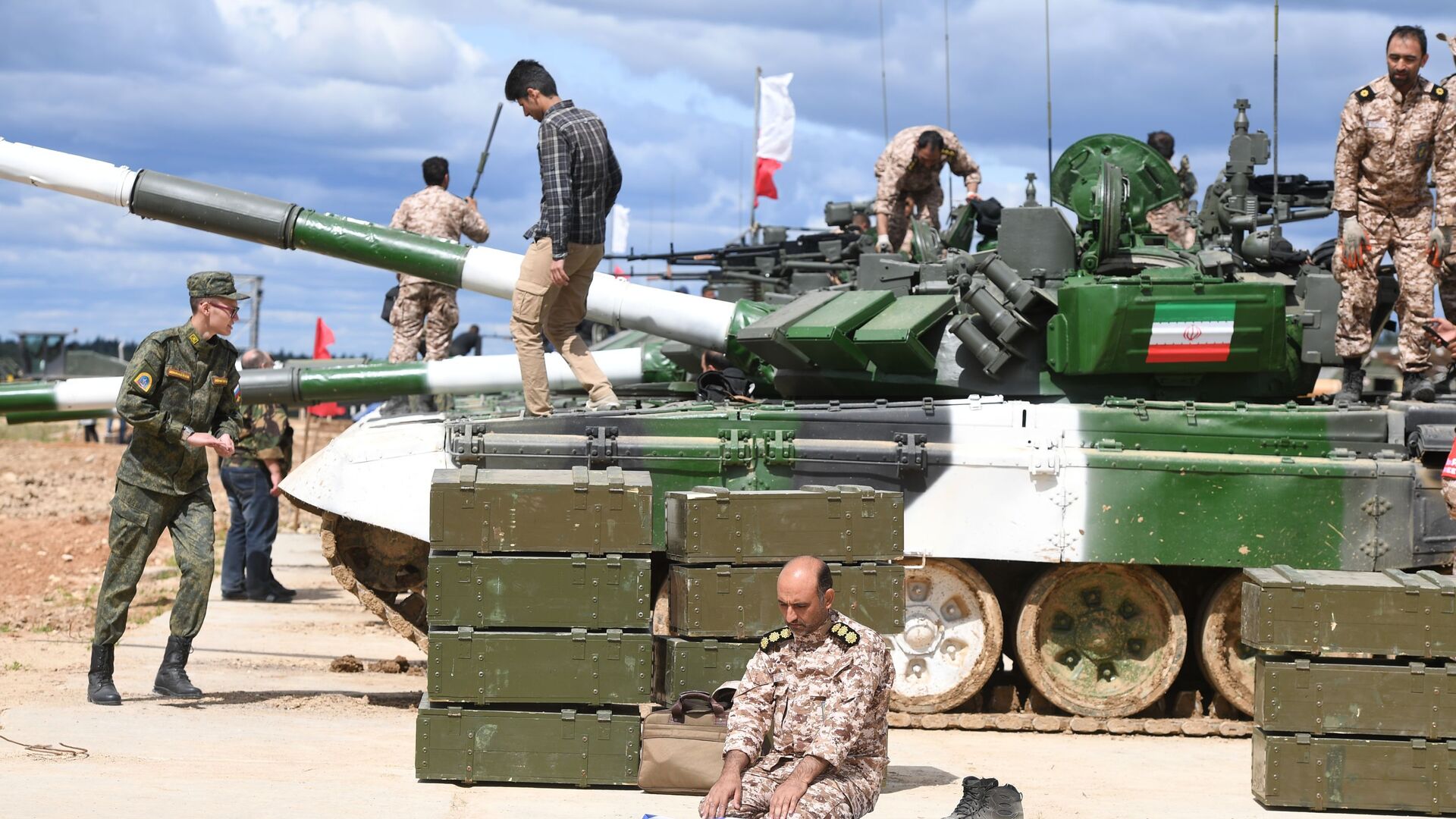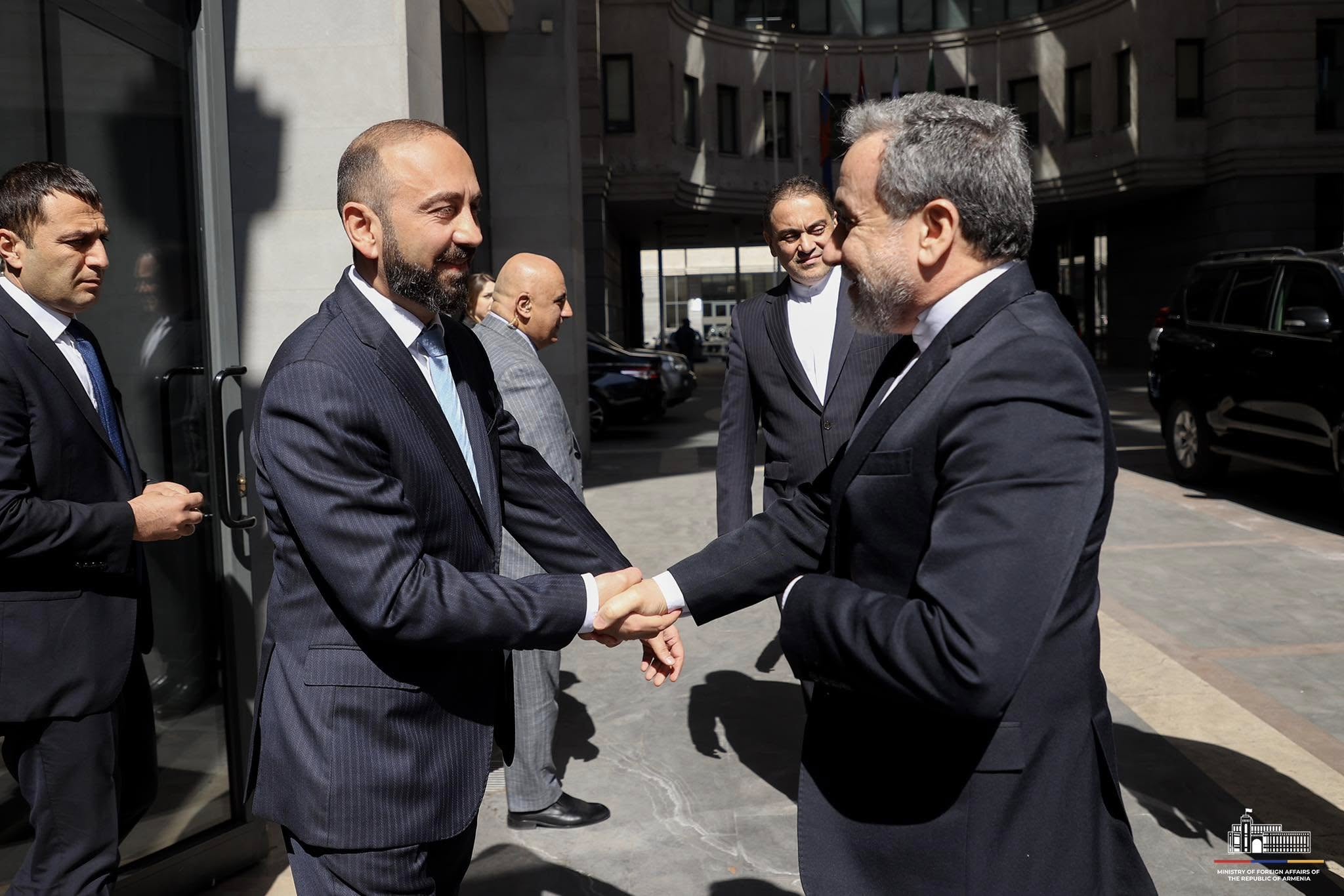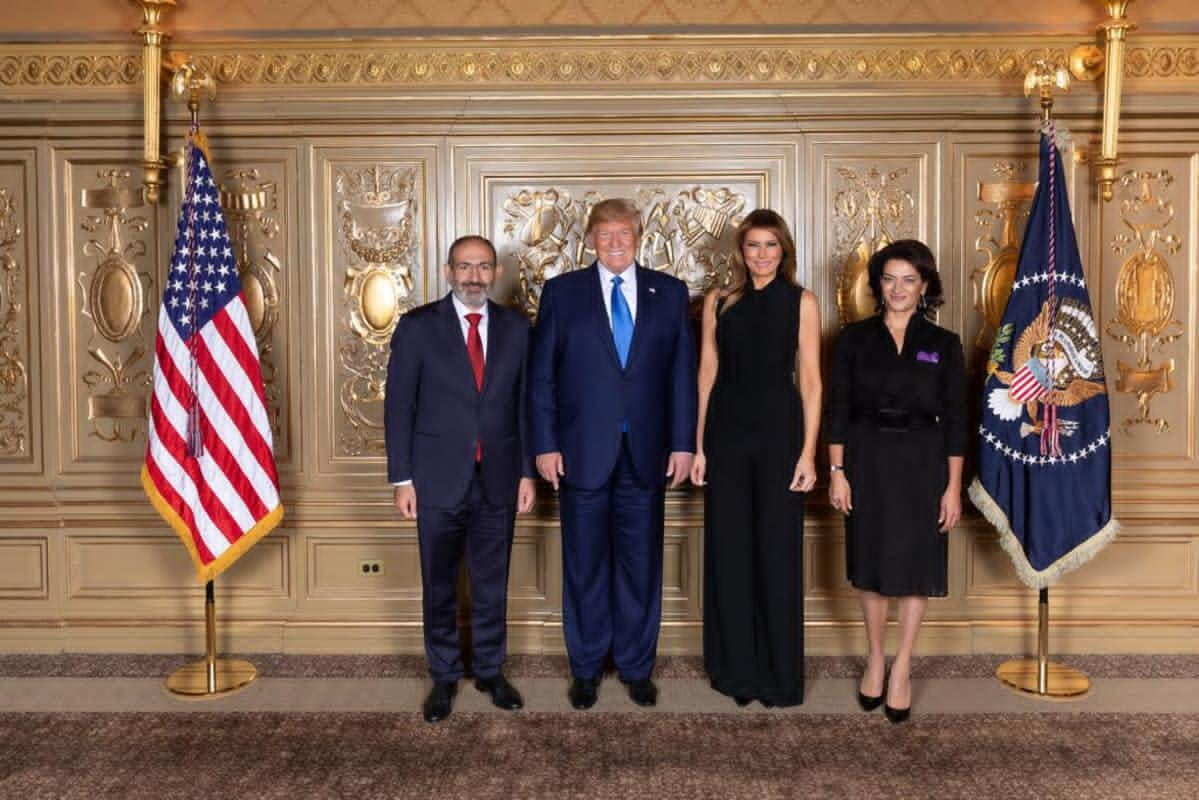"Baku must not be allowed to exploit Iran–Israel escalation": Yerevan's position
Armenia’s response to Iran-Israel escalation
Israel has carried out strikes on Iranian nuclear and military facilities located in various parts of the Islamic Republic. US President Donald Trump stated that he was aware of the operation. However, Washington insists it was a unilateral move and that US forces were not involved.
Leading Iranian nuclear scientists and senior military officials were killed, including Islamic Revolutionary Guard Corps commander Hossein Salami and Chief of the General Staff Mohammad Bagheri.
Armenia’s Foreign Ministry and Prime Minister Nikol Pashinyan condemned Israel’s attack on Iran.
Speaking at the GLOBSEC 2025 forum in the Czech Republic, Pashinyan said: “This puts the fragile stability that had taken shape in the region into question. We are very concerned.”
Political commentator Hakob Badalyan is convinced that Israel would not have gone ahead with such a strike without at least the tacit approval of the United States: “The danger of escalation is high. If a large-scale war breaks out between Iran and Israel, the likelihood of US involvement will be significant. We’ll see how events unfold and how far the escalation goes.”
He believes the main risk for Armenia is a possible attempt by Azerbaijan to use force to push through an extraterritorial road across Armenian territory — the so-called “Zangezur corridor.” For several years, Armenia has stated its readiness to unblock regional transport links and allow Azerbaijan access to its exclave of Nakhichevan. At the same time, Yerevan firmly rejects the notion of a “corridor,” as the term implies a loss of sovereign control over its own land. Tehran is also strongly opposed to such a scenario, not wishing to lose its border with Armenia.
The commentator argues that in this situation Armenia must engage in active diplomacy with a range of actors, including the US, Russia, and China.
“There are no ideal solutions for Armenia. It must make use of the diversity of interests to prevent the worst outcomes,” he says.
- French consulate on Armenia’s southern border: Will it deter Baku from escalation?
- Baku purchased over $2 billion worth of weapons in 2024: Armenian expert explains why
- ‘No grounds to reject Yerevan’s proposal on unblocking’ – Pashinyan
- Opinion: ‘If Baku cared about security, it could have negotiated practical guarantees with Yerevan’
“Unilateral strike on Iran causes deep concern”
Armenia’s Foreign Ministry has called for the immediate cessation of hostilities and respect for international law.
“A unilateral strike on Iran causes deep concern. The attack took place on the eve of the next round of talks [the latest round of negotiations between the US and Iran is scheduled for 15 June], jeopardising peace efforts as well as regional stability and global peace,” the ministry said in a statement.
Secretary of the Security Council Armen Grigoryan stated that the current situation poses a threat not only to Iran or the Middle East, but also creates problems for Armenia:
“The main threat to Armenia’s security remains the classic threat — a military one, not just within Armenia but across the region. Armenia continues its efforts to contribute to regional stability.”
Commentary by political analyst Hakob Badalyan
Attempt to derail US–Iran negotiations
“If Israel has carried out such a powerful strike, then Iran is forced to respond. I don’t believe this strike will make Iran more willing to make concessions in the negotiation process [with the US]. On the contrary, it will significantly complicate the situation.
Iran now needs to save face and deliver a counterstrike. This is necessary to show that Israel cannot treat it this way.
More likely, Israel’s aim was to derail the negotiation process. We know there are forces opposed to these talks — and not just Israel. Such forces also exist in the West. There are many opponents of the process, and they are quite influential. They have tried various means to push Trump to approve a military option. Trump resisted — this was clear.
A few weeks ago, National Security Adviser Waltz was dismissed. According to leaks in the American press, he had been actively lobbying for Israel’s hardline approach.
Undoubtedly, the Israeli strike was unprecedented not only from a military perspective but also in political terms. It will therefore provoke a response of an equally unprecedented scale. What form that will take remains to be seen. But I don’t think a large-scale war in the Middle East is in Trump’s interest.”
Israel legitimised Iran’s nuclear programme
“I assume that Israel’s goal is most likely to provoke a large-scale war. This is necessary for Israel to preserve its viability — especially against the backdrop of the revolutionary developments currently unfolding in the Middle East, where Israel’s role could diminish.
Israel’s main instrument for maintaining its role is the use of force. Right now, it is trying to rely on this in order to preserve — if not enhance — its place in the new Middle Eastern security architecture. There is no doubt that Netanyahu will try to take full advantage of this situation. His political — and even personal — future depends on it. If his political position weakens, he could even end up in prison on corruption charges. And that’s not even touching on broader geopolitical factors.
Russia and Iran have a strategic partnership agreement. It does not explicitly stipulate mutual military assistance, but it is a comprehensive deal that implies very close cooperation in the nuclear sphere. It also creates certain political and reputational commitments for Russia.
How will Moscow fulfil these commitments? What will China’s position be? There’s also the factor of the Arab states. Saudi Arabia, which only a few years ago was in open confrontation with Iran, has now declared its condemnation of Israel’s attack on its ‘brotherly nation.’
It’s possible that these developments will accelerate the formation of a new security architecture in the Middle East. When political solutions are needed but cannot be reached through diplomatic means, military tools often come into play.
The conditions for using those tools may even be intentionally created. For example, issues that are of interest to other actors might be resolved via the direct participants in the conflict.
And in fact, Israel’s attack has only further legitimised Iran on the international stage, giving it lawful grounds to assert its nuclear rights.”
Baku may be tempted to ‘fish in troubled waters’
“The main risk for Armenia, of course, is that Azerbaijan may try to take advantage of the situation to secure the so-called ‘Zangezur corridor.’ All the more so given what we know about Azerbaijani–Israeli ties. Israel has deepened those ties mainly with the intention of using Azerbaijan as a rear base for striking Iran, should any problems arise with Tehran.
Unfortunately, Armenia cannot fully control these risks. But there is work to be done. It must engage with both regional and extra-regional powers, carry out active diplomatic efforts, and do everything possible to keep the situation manageable.
One can only hope and expect that those with an interest in maintaining stability in the Caucasus will be able to do so — and will stop Azerbaijan from giving in to the temptation of ‘fishing in troubled waters.’ Not everything, but much will depend on Armenia’s diplomatic work.”
Would corridor gained by force be acceptable to West?
“Of course, there have been statements from Western partners about the inadmissibility of the use of force. Such statements have come from the West — and not only the West — regarding the Karabakh issue as well. Yet force was used. And the very countries that said ‘there is no military solution’ ended up accepting one. So statements like ‘a corridor must not be opened by force’ shouldn’t be taken at face value.
We must look at the motives. If a major Western player needs that route to open, then no one will oppose solving the problem by military means. Especially if this use of force can be applied ‘in troubled waters,’ as is the case now. No one will bear direct responsibility. They’ll simply acknowledge after the fact that a new situation, a new status quo, has emerged.
When Iran opposes the ‘corridor,’ it’s clear that it’s not against the use of force per se, but against any solution based on the corridor logic. That’s Tehran’s motive. In the case of statements from the West, the key is to understand whether there’s a real demand for the route.
In recent months, the European Union has been actively working on this topic. At the EU–Central Asia conference in Uzbekistan in early April, European Commission President Ursula von der Leyen stated that the Trans-Caspian transport corridor must ensure the unhindered crossing of borders.
But what exactly does ‘unhindered crossing of borders’ mean as the EU envisions it? What have they discussed with Azerbaijan and Armenia?”
US position on unblocking remains unclear
“I don’t even know what the US position is. Unlike the Democrats, the new administration has not spoken on this issue. The Democratic administration made it very clear that construction of the so-called ‘Middle Corridor’ was a strategic priority for them. They clearly outlined the route: Azerbaijan–Armenia–Turkey.
It’s clear that this is about forming a political barrier between Iran and Russia — something the Democratic administration also spoke about quite openly.
The Republican administration has not yet commented on the matter. We don’t know what their ideas are or how interested they are in the topic. If there is little interest, they may also show little concern about the risks of military escalation. That could create more opportunities for them — for example, in negotiations with Russia and Iran — rather than the opposite. In short, the situation is quite complex, and it’s difficult to give a definitive assessment.”










